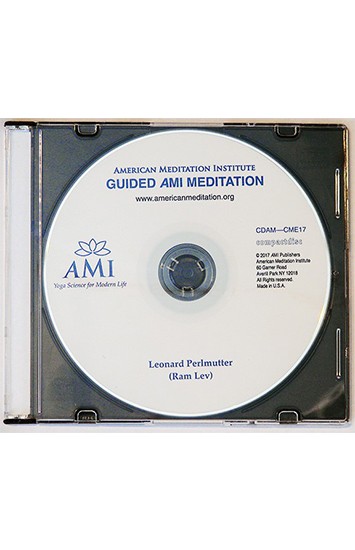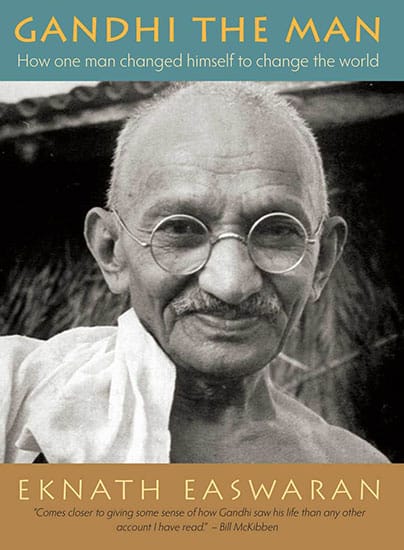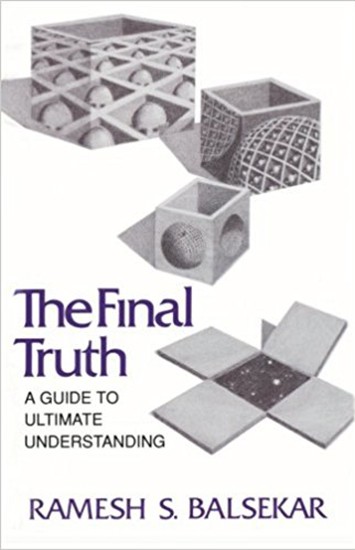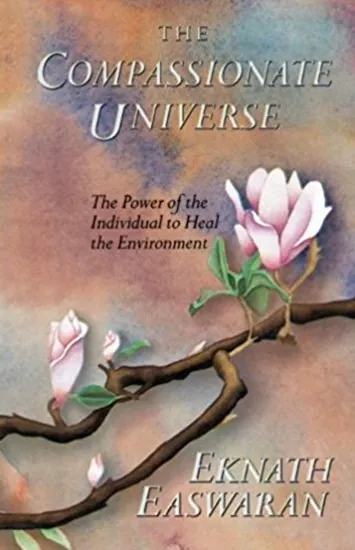-
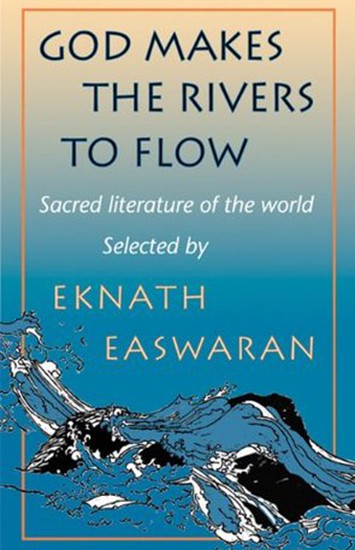 Chosen for their universal spiritual appeal, literary merit, and recognized wisdom, these selections are perfect subjects for meditation and daily inspirational reading. Drawing from Christian, Jewish, Hindu, Buddhist, Muslim, and Native American sacred literature, this expanded third edition serves as a useful reference and guide to world mysticism. Included are Easwaran's criteria for choosing personally transformative passages, tips on memorization, and suggestions for further reading.
Chosen for their universal spiritual appeal, literary merit, and recognized wisdom, these selections are perfect subjects for meditation and daily inspirational reading. Drawing from Christian, Jewish, Hindu, Buddhist, Muslim, and Native American sacred literature, this expanded third edition serves as a useful reference and guide to world mysticism. Included are Easwaran's criteria for choosing personally transformative passages, tips on memorization, and suggestions for further reading. -
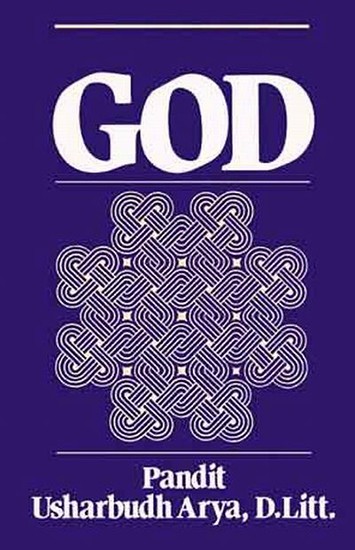 One cannot talk about God, Dr. Arya tells us; one can only be conscious of Him experientially. Everyone is looking for God: the alcoholic in his bottle, the child in his Superman comics, the artist in his work. The need to know God springs from our deepest nature. But most of us are not aware of this. And so, drawing upon his own rich background in the yoga-Vedanta tradition, the author tells us how this awareness can be developed in everyone (including atheists and agnostics).
One cannot talk about God, Dr. Arya tells us; one can only be conscious of Him experientially. Everyone is looking for God: the alcoholic in his bottle, the child in his Superman comics, the artist in his work. The need to know God springs from our deepest nature. But most of us are not aware of this. And so, drawing upon his own rich background in the yoga-Vedanta tradition, the author tells us how this awareness can be developed in everyone (including atheists and agnostics). -
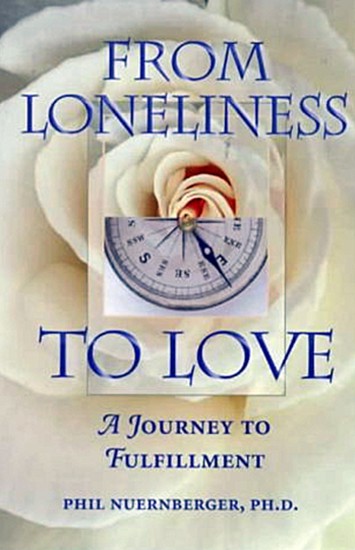 Phil Nuernberger's From Loneliness to Love picks up where his prior book "The Quest For Personal Power" ends. The author briefly restates his methods for achieving self-knowledge, self-mastery and self-fulfillment which the reader will find clearly explained in "The Quest." Phil's message is that loneliness is a spiritual problem, an illusion created by our ego. He prescribes prayer, meditation, and contemplation as the means to achieving the mystical experience of love.
Phil Nuernberger's From Loneliness to Love picks up where his prior book "The Quest For Personal Power" ends. The author briefly restates his methods for achieving self-knowledge, self-mastery and self-fulfillment which the reader will find clearly explained in "The Quest." Phil's message is that loneliness is a spiritual problem, an illusion created by our ego. He prescribes prayer, meditation, and contemplation as the means to achieving the mystical experience of love. -
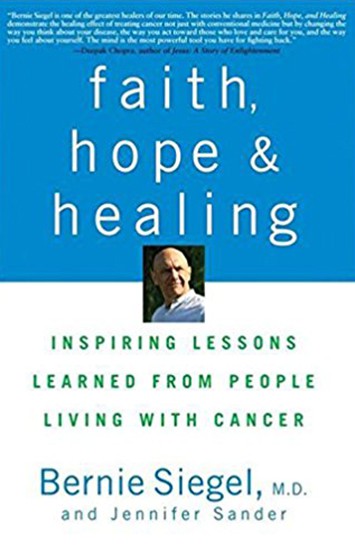 In this collection of first-person accounts, doctor and author Siegel (Love, Medicine, and Miracles) brings together almost three dozen cancer patients (or close relations of) to share their stories and the lessons they've learned. Many entries tackle the moment of diagnosis (the first, from survivor Angela Passidomo Trafford, opens with the line, "How many times do I have to have cancer?!"), while others pick up at the moment the diagnosis first hits home; still others focus on the end, like Ann Martin Bowler, whose sick brother passed days after a reinvigorating near-death experience. Lynn Zeller contributes a list of the "eight practices" she discovered through cancer that have led to a "wonderfully expanded experience of life" (including a focus on gratitude, mindfulness, and the idea that the universe "is in a conspiracy for my good"); Edwina Ford focuses on her afflicted husband's admiration, and efforts on behalf, of Lance Armstrong's post-surgery Tour de France comeback. For each piece, Siegel provides a reflection and a moral ("Life's difficulties are what teach us to grow") that clarify and encourage. Anyone struggling with cancer will find many relatable voices and, in Siegel, a compassionate expert commentator.
In this collection of first-person accounts, doctor and author Siegel (Love, Medicine, and Miracles) brings together almost three dozen cancer patients (or close relations of) to share their stories and the lessons they've learned. Many entries tackle the moment of diagnosis (the first, from survivor Angela Passidomo Trafford, opens with the line, "How many times do I have to have cancer?!"), while others pick up at the moment the diagnosis first hits home; still others focus on the end, like Ann Martin Bowler, whose sick brother passed days after a reinvigorating near-death experience. Lynn Zeller contributes a list of the "eight practices" she discovered through cancer that have led to a "wonderfully expanded experience of life" (including a focus on gratitude, mindfulness, and the idea that the universe "is in a conspiracy for my good"); Edwina Ford focuses on her afflicted husband's admiration, and efforts on behalf, of Lance Armstrong's post-surgery Tour de France comeback. For each piece, Siegel provides a reflection and a moral ("Life's difficulties are what teach us to grow") that clarify and encourage. Anyone struggling with cancer will find many relatable voices and, in Siegel, a compassionate expert commentator. -
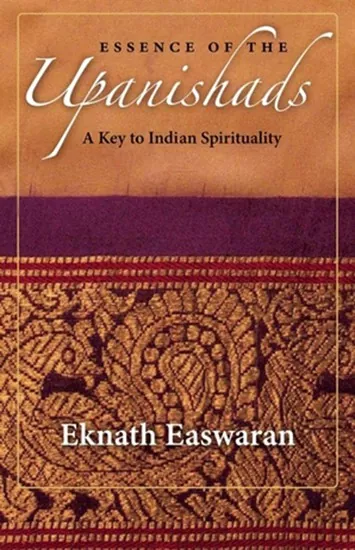 Easwaran takes one of India's classic wisdom texts, the Katha Upanishad, and explains how it embraces all the key ideas of Indian spirituality within the context of a powerful mythic quest - the story of a young hero who ventures into the land of death in search of immortality. Illustrating the insights of the Katha through analogies and everyday examples, Easwaran shows how these ancient teachings help us gain a deeper understanding of our world and ourselves today.
Easwaran takes one of India's classic wisdom texts, the Katha Upanishad, and explains how it embraces all the key ideas of Indian spirituality within the context of a powerful mythic quest - the story of a young hero who ventures into the land of death in search of immortality. Illustrating the insights of the Katha through analogies and everyday examples, Easwaran shows how these ancient teachings help us gain a deeper understanding of our world and ourselves today. -
 Eknath Easwaran is a foremost translator and interpreter of the much-loved Indian scripture, the Bhagavad Gita. He liked to say that his verse-by-verse commentary grew like a tree issuing directly from his life, which was so rooted in the Gita that he found a deep understanding of its teachings in the most everyday experiences – sharing a treat with young children, walking with friends down a busy street, or watching a mime in San Francisco’s Union Square. Easwaran translates each verse, relates it to our modern lives through stories and anecdotes, and gives us spiritual exercises that we can use every day. This first volume in a three-volume set covers chapters 1–6 of the Gita, and concentrates on the individual: the nature of our innermost Self, how it can be discovered in the depths of consciousness, and how this discovery transforms daily life. The introduction includes instructions in Easwaran’s universal method of passage meditation.
Eknath Easwaran is a foremost translator and interpreter of the much-loved Indian scripture, the Bhagavad Gita. He liked to say that his verse-by-verse commentary grew like a tree issuing directly from his life, which was so rooted in the Gita that he found a deep understanding of its teachings in the most everyday experiences – sharing a treat with young children, walking with friends down a busy street, or watching a mime in San Francisco’s Union Square. Easwaran translates each verse, relates it to our modern lives through stories and anecdotes, and gives us spiritual exercises that we can use every day. This first volume in a three-volume set covers chapters 1–6 of the Gita, and concentrates on the individual: the nature of our innermost Self, how it can be discovered in the depths of consciousness, and how this discovery transforms daily life. The introduction includes instructions in Easwaran’s universal method of passage meditation. -
Out of stock
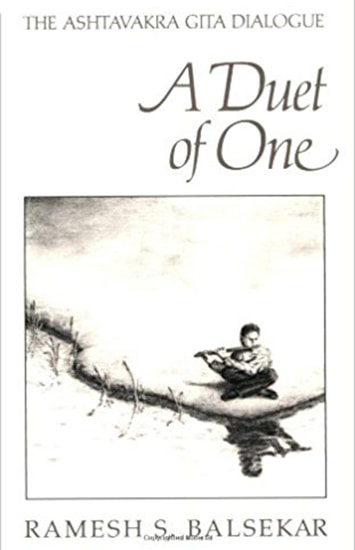 A Duet of One is a translation and interpretation of the most touchingly beautiful of all the Advaitic texts. It provides us with an illuminating and in-depth look at the nature of duality and dualism. In this book Ramesh reveals himself as a spiritual Master for the modern age. His insightful commentary unlocks the beauty and the mystery in this ancient text. He points us to the Understanding that is the true nature of us all.
A Duet of One is a translation and interpretation of the most touchingly beautiful of all the Advaitic texts. It provides us with an illuminating and in-depth look at the nature of duality and dualism. In this book Ramesh reveals himself as a spiritual Master for the modern age. His insightful commentary unlocks the beauty and the mystery in this ancient text. He points us to the Understanding that is the true nature of us all. -
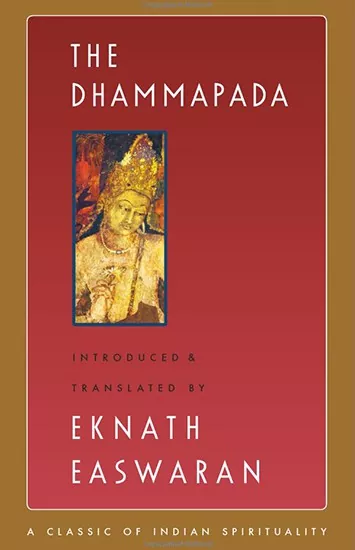 An English-language book originally published in 1986. It contains Easwaran's translation of the Dhammapada, a Buddhist scripture traditionally ascribed to the Buddha himself. The book also contains a substantial overall introduction of about 70 pages,[2] as well as introductory notes to each of the Dhammapada's 26 chapters.
An English-language book originally published in 1986. It contains Easwaran's translation of the Dhammapada, a Buddhist scripture traditionally ascribed to the Buddha himself. The book also contains a substantial overall introduction of about 70 pages,[2] as well as introductory notes to each of the Dhammapada's 26 chapters. -
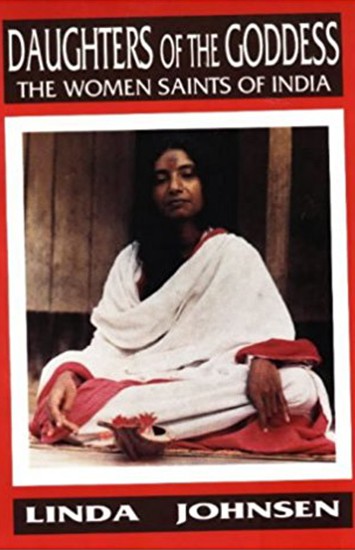 This book takes us along on a search for the feminine face of God. We travel with Linda Johnsen for a fascinating investigation of the great women saints of India who manifest the divine in their lives. Together with her we comb the scriptures, meet the holy ones, and are led, step by step, to sit in awe at the feet of six remarkable, contemporary women.
This book takes us along on a search for the feminine face of God. We travel with Linda Johnsen for a fascinating investigation of the great women saints of India who manifest the divine in their lives. Together with her we comb the scriptures, meet the holy ones, and are led, step by step, to sit in awe at the feet of six remarkable, contemporary women. -
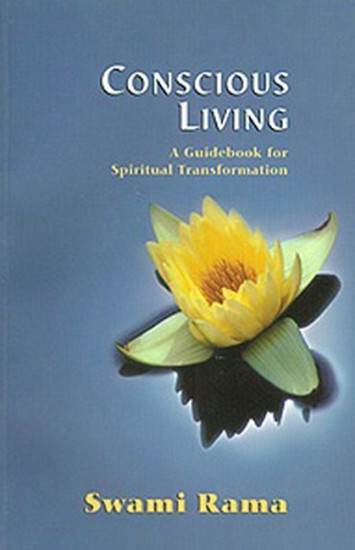 This is a practical book for people living in the world. The word "practical" implies that the teaching can be practiced in the world, in the midst of family, career and social obligations. No prior preparation is required for reading this book, and after reading this book, no further teaching is required. If one were to sincerely practice the teachings presented by Sri Swami Rama in this book, one will surely achieve the goal of self realization, a state described by Swamiji as the summum bonum of life, a state of bliss, a state of perfection.
This is a practical book for people living in the world. The word "practical" implies that the teaching can be practiced in the world, in the midst of family, career and social obligations. No prior preparation is required for reading this book, and after reading this book, no further teaching is required. If one were to sincerely practice the teachings presented by Sri Swami Rama in this book, one will surely achieve the goal of self realization, a state described by Swamiji as the summum bonum of life, a state of bliss, a state of perfection. -
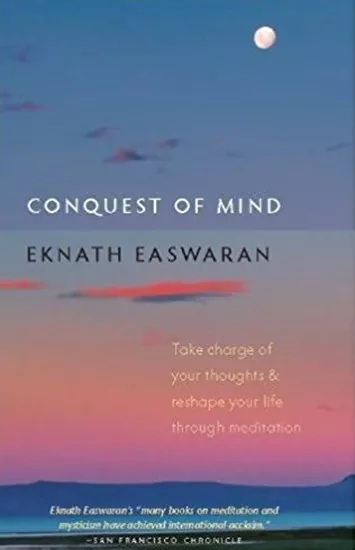 Getting caught in unwanted thoughts and emotions can feel like an inevitable part of life. But Eknath Easwaran, a world-famous spiritual teacher who taught meditation for nearly 40 years, shows a way to break free. Just as a fitness routine can result in a strong, supple body, spiritual disciplines can shape a secure personality and a resilient, loving mind. Best of all, these opportunities to grow stronger spiritually arise not only during meditation but throughout the day. Whether working with difficult colleagues, going out to eat, or responding to a child’s needs, readers learn how to try out different, wiser choices. With humor and empathy, Easwaran places timeless teachings from the Buddha and other mystics into contemporary scenes — watching a juggler on the street, taking a tennis lesson, going to the theater. Training the mind is life’s biggest adventure, and Conquest of Mind shows how this practice brings deepening relationships, increasing vitality, and a greater sense of purpose.
Getting caught in unwanted thoughts and emotions can feel like an inevitable part of life. But Eknath Easwaran, a world-famous spiritual teacher who taught meditation for nearly 40 years, shows a way to break free. Just as a fitness routine can result in a strong, supple body, spiritual disciplines can shape a secure personality and a resilient, loving mind. Best of all, these opportunities to grow stronger spiritually arise not only during meditation but throughout the day. Whether working with difficult colleagues, going out to eat, or responding to a child’s needs, readers learn how to try out different, wiser choices. With humor and empathy, Easwaran places timeless teachings from the Buddha and other mystics into contemporary scenes — watching a juggler on the street, taking a tennis lesson, going to the theater. Training the mind is life’s biggest adventure, and Conquest of Mind shows how this practice brings deepening relationships, increasing vitality, and a greater sense of purpose. -
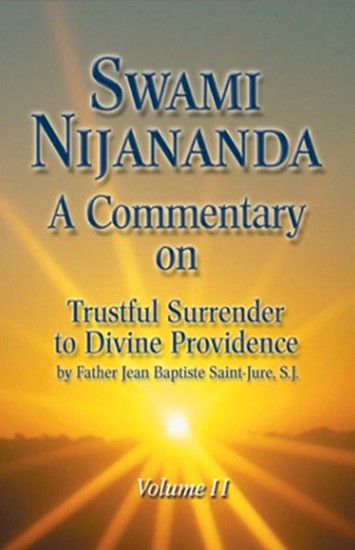 This second volume of Swami Nijananda's Commentary on Trustful Surrender to Divine Providence, is a reflection on the writings of Blessed Claude de la Colombiere, S.J.. This volume continues the discussion of the belief that "nothing happens to us in life unless God wills it so." Swami Nijananda leads an illustrious discussion of a process that turns stumbling blocks into stepping stones.
This second volume of Swami Nijananda's Commentary on Trustful Surrender to Divine Providence, is a reflection on the writings of Blessed Claude de la Colombiere, S.J.. This volume continues the discussion of the belief that "nothing happens to us in life unless God wills it so." Swami Nijananda leads an illustrious discussion of a process that turns stumbling blocks into stepping stones. -
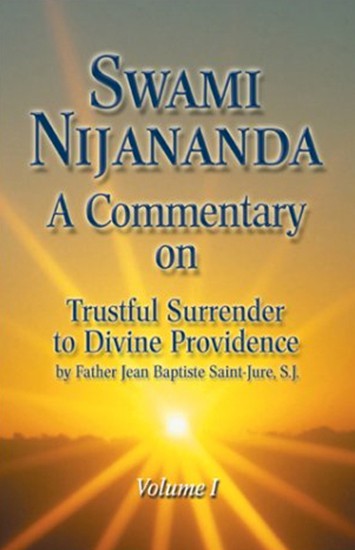 Swami Nijananda's Commentary on Trustful Surrender to Divine Providence Volume I, by Father Jean Baptiste Saint-Jure, is the first volume of lectures to be published. Many of his students felt these lectures were of value to them long after the lecture series ended. This volume explains and illuminates the essential message of Christianity. "In every circumstance, without exception," says Swami Nijananda, surrender to the Lord is the crucial thing...It is your task to harmonize yourself with what the Lord has ordained and not the other way around." This book provides the guidance to orient oneself spiritually in any situation the world presents, however tragic.
Swami Nijananda's Commentary on Trustful Surrender to Divine Providence Volume I, by Father Jean Baptiste Saint-Jure, is the first volume of lectures to be published. Many of his students felt these lectures were of value to them long after the lecture series ended. This volume explains and illuminates the essential message of Christianity. "In every circumstance, without exception," says Swami Nijananda, surrender to the Lord is the crucial thing...It is your task to harmonize yourself with what the Lord has ordained and not the other way around." This book provides the guidance to orient oneself spiritually in any situation the world presents, however tragic. -
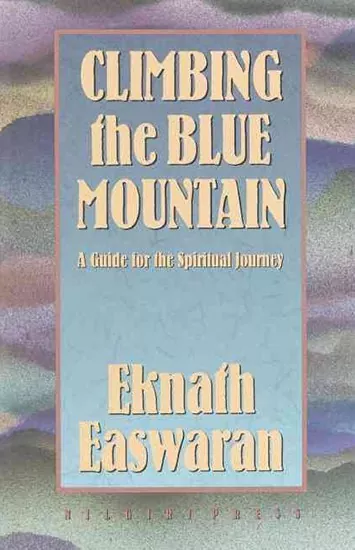 Sixteen lively essays illuminate different aspects of the spiritual journey. The introduction presents the author as a “travel agent” on a journey to the spiritual world within us. The essays are metaphorical travel brochures, invitations to take the plunge into self-discovery through the adventure of meditation. Edited from his extemporaneous talks, this inspiring collection of essays gives the flavor of hearing this great spiritual teacher and storyteller in person. Easwaran successfully combines his Eastern and Western wisdom, which includes a thorough knowledge of English literature, into an eight-point program usable by followers of all religious traditions.
Sixteen lively essays illuminate different aspects of the spiritual journey. The introduction presents the author as a “travel agent” on a journey to the spiritual world within us. The essays are metaphorical travel brochures, invitations to take the plunge into self-discovery through the adventure of meditation. Edited from his extemporaneous talks, this inspiring collection of essays gives the flavor of hearing this great spiritual teacher and storyteller in person. Easwaran successfully combines his Eastern and Western wisdom, which includes a thorough knowledge of English literature, into an eight-point program usable by followers of all religious traditions. -
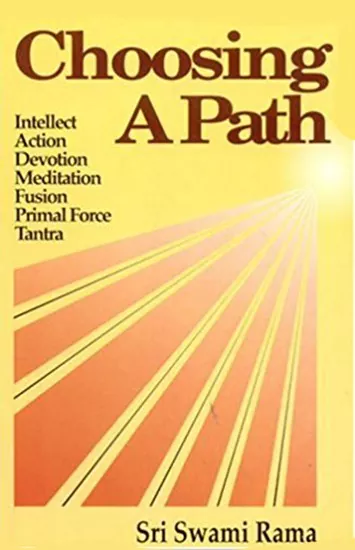 This book gives a glimpse and creates a provocative atmosphere for the intelligent and learned so that they will begin studying their inclination to follow a particular path, and so that they don't waste time and energy in the prevailing confusion of our times, but choose a definite path for themselves. The younger generation today is longing to seek something new and fresh, but it is torn by the conflicts created by guilt and fear. With these views in mind and to serve the needs of the aspirants and free-thinkers, I present this book.
This book gives a glimpse and creates a provocative atmosphere for the intelligent and learned so that they will begin studying their inclination to follow a particular path, and so that they don't waste time and energy in the prevailing confusion of our times, but choose a definite path for themselves. The younger generation today is longing to seek something new and fresh, but it is torn by the conflicts created by guilt and fear. With these views in mind and to serve the needs of the aspirants and free-thinkers, I present this book. -
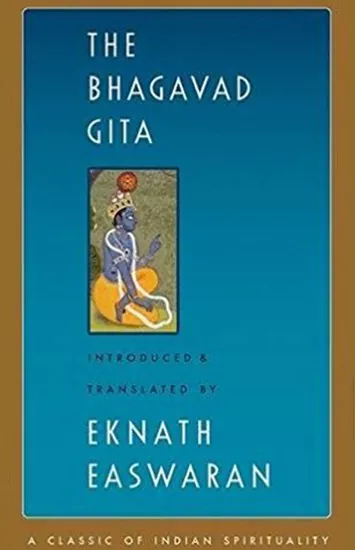 Vivid literature, lofty philosophy -- the Bhagavad Gita distills the finest in India's vast and varied culture On the morning of battle, facing Armageddon, prince Arjuna loses his nerve and refuses to fight. Krishna knows better: "Your very nature will drive you to fight. Your only choice is what to fight against." His advice gives an inspiring model of the man or woman of action -- the person who aims at goodness in a world of conflict and change. In this translation, the Gita stands out as a book of choices -- direct, practical, universal. The introduction sketches the background of the poem and gives clear, contemporary explanations of the basic ideas of Indian philosophy: karma, reincarnation, yoga, freedom. Separate chapter introductions outline the drama as it unfolds.In the Bhagavad Gita, Prince Arjuna asks direct, uncompromising questions of his spiritual guide on the eve of a great battle.In this best-selling and expanded edition of the most famous --and popular -- of Indian scriptures, Eknath Easwaran contextualizes the book culturally and historically and explains the key concepts of Hindu religious thought and the technical vocabulary of yoga. Chapter introductions, notes, and a glossary help readers understand the book's message. Most importantly, this translation uses simple, clear language to impart the poetry, universality, and timelessness of the Gita's teachings.
Vivid literature, lofty philosophy -- the Bhagavad Gita distills the finest in India's vast and varied culture On the morning of battle, facing Armageddon, prince Arjuna loses his nerve and refuses to fight. Krishna knows better: "Your very nature will drive you to fight. Your only choice is what to fight against." His advice gives an inspiring model of the man or woman of action -- the person who aims at goodness in a world of conflict and change. In this translation, the Gita stands out as a book of choices -- direct, practical, universal. The introduction sketches the background of the poem and gives clear, contemporary explanations of the basic ideas of Indian philosophy: karma, reincarnation, yoga, freedom. Separate chapter introductions outline the drama as it unfolds.In the Bhagavad Gita, Prince Arjuna asks direct, uncompromising questions of his spiritual guide on the eve of a great battle.In this best-selling and expanded edition of the most famous --and popular -- of Indian scriptures, Eknath Easwaran contextualizes the book culturally and historically and explains the key concepts of Hindu religious thought and the technical vocabulary of yoga. Chapter introductions, notes, and a glossary help readers understand the book's message. Most importantly, this translation uses simple, clear language to impart the poetry, universality, and timelessness of the Gita's teachings. -
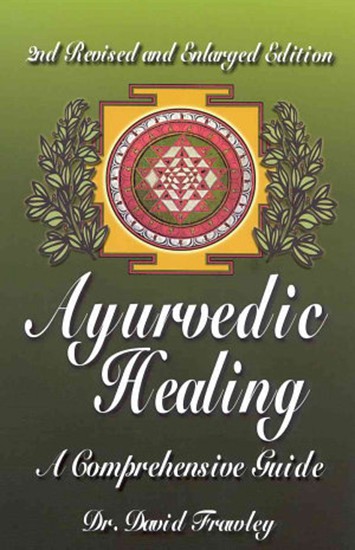 Ayurvedic Healing presents the Ayurvedic treatment of common diseases, covering over eighty different ailments from the common cold to cancer. It provides a full range of treatment methods including diet, herbs, oils, gems, mantra and meditation. The book also shows the appropriate life-style practices and daily health considerations for your unique mind-body type both as an aid to disease treatment and for disease prevention. This extraordinary book is a complete manual of Ayurvedic health care that offers the wisdom of this ancient system of mind-body medicine to the modern reader relative to our special health concerns today. The present edition is a revised and expanded version of the original 1989 edition, covering additional diseases and adding new treatments.
Ayurvedic Healing presents the Ayurvedic treatment of common diseases, covering over eighty different ailments from the common cold to cancer. It provides a full range of treatment methods including diet, herbs, oils, gems, mantra and meditation. The book also shows the appropriate life-style practices and daily health considerations for your unique mind-body type both as an aid to disease treatment and for disease prevention. This extraordinary book is a complete manual of Ayurvedic health care that offers the wisdom of this ancient system of mind-body medicine to the modern reader relative to our special health concerns today. The present edition is a revised and expanded version of the original 1989 edition, covering additional diseases and adding new treatments.

